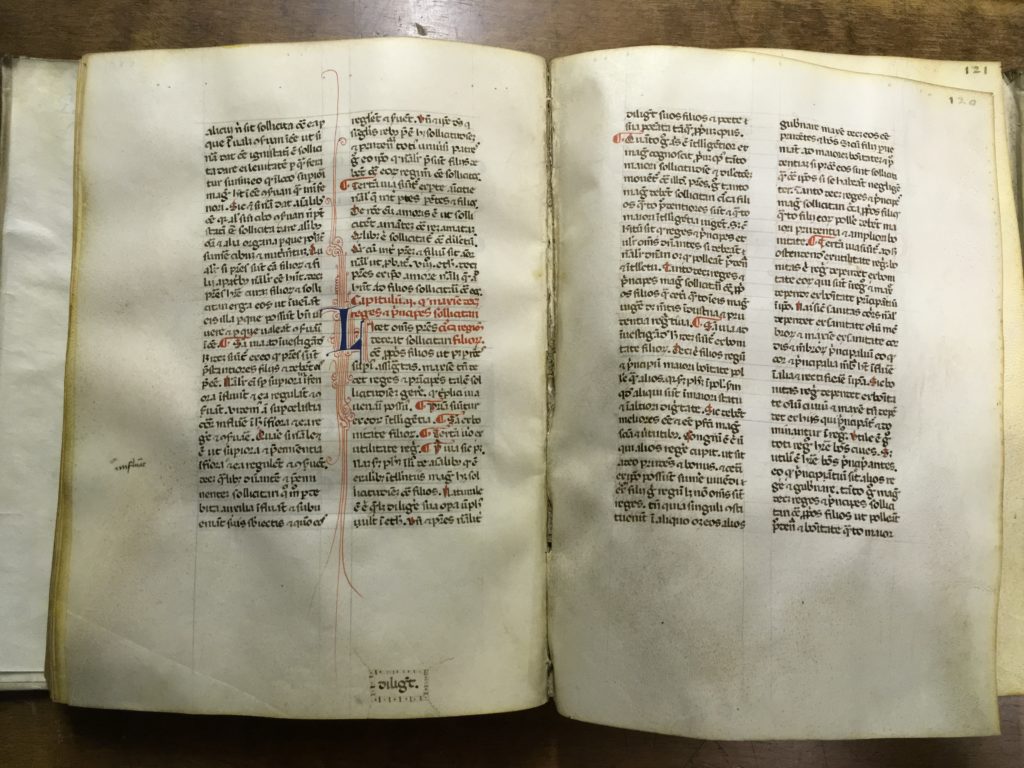Giles of Rome’s De regimine regem et principum falls under the ‘mirror for princes’ genre. The ‘mirror for princes’ genre is advice literature, meant to instruct rulers in governance, and the morals and ethics found in good government. This genre dates as far back as ancient Greece, and became popular in Western Europe during the high Middle Ages. Giles of Rome’s De regimine – if we can take extant manuscripts as evidence – was seemingly more popular than any other ‘mirror for princes’, with the exception of the pseudo-Aristotle’s Secretum secretorum.

Giles of Rome, born circa 1243 in Rome, was an Augustinian friar and student, then later, master at the University of Paris. He wrote De regimine sometime after 1277 and dedicated it to the future French king, Philip IV “the Fair.” (As mentioned last week, the Library’s manuscript is a 14th century Italian copy of De regimine.)
De regimine is composed of three books; the first, regarding the conduct of an individual; the second, regarding the rule of the family and household; and the third, regarding the governance of the city or state. Each book is further divided into several parts, which then contain chapters related to the book’s topic. Giles’ De regimine relies heavily on Aristotle’s Ethics, Politics, and De rhetorica.
Physicians have recommended sensible diets well before modern times. While De regimine focuses much on governance, Book II discusses the rule of the family and the household, which includes one’s diet.
Here’s an excerpt of Book II, Part I, Chapter V:
As [one can be] neither praised nor blamed for the natural virtues, so we do not praise nor blame [one] for the five senses; just as no man is praised as being a good man for having good digestion and being well, so a man is not praised for sharp sight and good hearing. But if it happens a man is bleary-eyed and his sight impaired because of great eating and drinking, or if he has bad digestion or a weak stomach because of eating, he should be blamed for drinking too much, and not for having bad digestion or bad eyesight. He should be blamed for eating too much meat and drinking too much, for it is in his power to eat and drink in moderation.
[Translated from a 1607 printed version and John Trevisa’s early 15th-century Middle English translation]
So, if you were born with bad eyesight and a weak stomach, you shouldn’t be blamed. But if you’ve had an excess of meat and drink to the point where your eyesight is blurry and your stomach’s upset, shame on you!
Sources:
Briggs, Charles Fairbank. “The English manuscripts of Giles of Rome’s ‘De regimine principum’ and their audience, 1300-1500.” Dissertation, The University of North Carolina at Chapel Hill, 1993.
—–. “The Manuscript as Witness: Editing Trevisa’s De regimine principum Translation.” Medieval Perspectives 11 (1996): 42-52.
